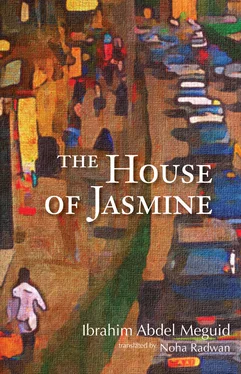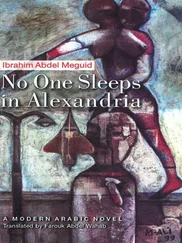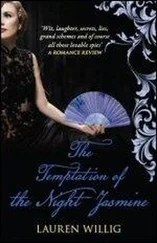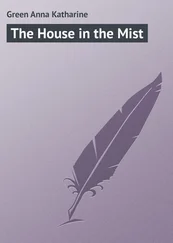In winter, when raucous air flows down the roads, blowing paper scraps and screaming through the alleys, when the lights are turned off and you cannot tell the land from the sea, and the café becomes cold and wet, we all, without any prior agreement, refrain from going out. On the warmer nights we meet, also without any prior agreement. We go out at around the same time, and slowly walk down the side streets by the old walls, whose colors have faded. One of us may run into another, and we both smile, shake hands, and walk to the café together. Didn’t Hassanayn say that we all functioned according to a secret clock? This has become an established rule, and sometimes we manage to meet by chance at other times, too.
This evening, we weren’t playing backgammon. We had met early and sat close to each other, our eyes fixed on the television set, which was placed on a high shelf on the wall.
“The official rallies will start again, Shagara,” Hassanayn said.
“I’ll find an excuse for staying out of them,” I answered.
“But why don’t you participate. Do you think that what happened to you at the beginning of the year will happen again?” ‘Abd al-Salam said, referring to the fact that I’d been arrested after the workers’ demonstrations last January, an incident which had really rattled me. I had only been released because of the testimony of the chairman of the shipyard’s board of directors who had said, “Yes, Shagara is usually assigned to lead demonstrations, as I told you, but they are official government rallies that the shipyard arranges to welcome the president and his guests.”
I had almost shouted out that I was really the one who incited all the demonstrators, that I was the one who pulled up the lamp posts, tore out the sidewalk tiles, burned transportation vehicles, night clubs, and police departments. I don’t lead official rallies, as he said, but only cheat, and I’ve never even gone to any of them.
They had arrested me at dawn, policemen lined up on the stairs from the street to the roof. I’m not sure how they opened the door to the building where I’m the only resident, since I always lock it at night. I suppressed my anger and rage. They also released me at dawn. I looked around the calm Pharaohs’ neighborhood, where I had never walked before. Who would have guessed that the State Security office was in this beautiful neighborhood? There were many trees, some bare, some tall, some well trimmed. The streets had been washed by both the rain and the city cleaners. There were yards and fences around the houses.
It had been bitter cold, and the sky was threatening me with small drops of rain. I’d walked with my hands in my pockets. I don’t like suits. I don’t think that I’ll ever wear a suit except on my wedding day, and I don’t think that I will wear it again after that. I tried to keep my face covered with my upper arm. I saw Alexandria asleep for the first time. The city was relaxed, sighing peacefully, unaware of everything around it.
Over the next few days, I’d found excuses to avoid participating in the sweeping rallies of support for the regime, which poured out from every governorate in Egypt to ‘Abdin Palace. Al-Dakruri led the workers. It was his second time after the last July 26th. He said that this would be my chance to prove what the chairman of the board had said about me. I realized that he did his job fully, and that my secret was still unknown. I said that I would wait until a year had passed since my mother’s death. He seemed to respect my wish. On the first of May, it was decided that only members of the workers’ union would go to celebrate Labor Day in Cairo. On the twenty-sixth of July the President flew to Alexandria in a helicopter, and so the welcoming rallies were canceled. It was as if they knew that I had no appetite for them.
In fact, I felt devastated. I remembered my decision to kill ‘Abdu al-Fakahani and felt a strange fear. I had come to feel that I wanted to escape from everybody. I even went to see ‘Abdu and asked him to give me until the end of the year to pay my debt, and he agreed right away. He too seemed to be afraid of me, I don’t know why.
I ran into Holy Yahya on the street, and went to shake hands with him, but he walked away. I called him, shook his hand, and patted him on the shoulder. His red face had turned yellow, so I eased his anxiety, and said that someday I would need some carpets.
“I’m at your disposal,” he said.
#
“That’s Jerusalem airport,” Hassanayn said, when the television began its live broadcast from there. Magid lit a cigarette. ‘Abd al-Salam became very pale.
“Begin!”
“Dayan!”
“And Golda. . look at her.”
The comments were made by other people in the café. We all fall silent when the door to the airplane opens. There is President Sadat himself, his smile wide as he shakes hands with the Israeli leaders. He smiles widely as he shakes hands with Golda, and warmly spends a few moments shaking Dayan’s hand. His teeth are bright white and his mustache neatly trimmed. I thought of the wide street behind us, how empty it was now, and of the silence that had fallen over the people living in the hills. Silence and gloom were filling the space behind me as darkness fell. I was sitting on the edge of a cliff over a deep valley. One push backward would have left me dead.
“A soft, sly melody, like the groan of helpless, defeated souls,” ‘Abd al-Salam said, commenting on the Israeli national anthem. Then he got up, stuck his hands in his pockets, and paced around us, looking at the ground. The electricity went out.
“Good,” said Magid with trembling lips. We didn’t leave the café. We sat by the light of the candles brought by Muhsin, the waiter who rarely spoke.
“How can he do that?” Magid asked as if he were talking to himself. He took off his glasses and started wiping them with his handkerchief. I wanted to joke about it, and so said to Hassanayn:
“Here he has finished you off with a single trip.” He smiled and blushed. It was not a full smile. Neither Magid nor Hassanayn laughed. ‘Abd al-Salam walked away from us and slowly wandered into the dark street. Whatever I said seemed silly. I suppose I was getting into politics, unintentionally.
Hassanayn had once talked about himself. He said that he was a low-level employee waiting for a big financial windfall before getting married. He had failed regular school, but had managed to get his high school diploma through correspondence school. He became a correspondence student in the history department at the school of arts and letters. He didn’t have enough time to learn about all the wars and conspiracies that seemed to make up most of human history. It took him two years to pass each year’s exams. He also had asthma, not too serious, but it was still asthma. He laughed at his strange circumstances and said that he was the only person in the country who was fighting on all three fronts at the same time: poverty, ignorance, and disease.
“Just like the July 23rd Revolution,” he added with a giggle. We all laughed too. He didn’t seem embarrassed and remained cheerful.
I asked Muhsin, the waiter, to bring us a backgammon board. I was afraid that Magid and Hassanayn would let me down, but they both agreed to play. ‘Abd al-Salam returned from the darkened street.
“ As-Salamu ‘Alaykum, ” he said, shook hands with each of us, and sat down, while we looked at one another. He greeted us as though he had just come in, as though he had not been sitting with us a few minutes before. He probably realized that his behavior seemed strange. Maybe he noticed our surprise as we shook hands with him. He sat in silence for a while then joined our backgammon game. When the electricity finally returned, we were the only customers in the café. The waiter didn’t turn the television back on, and we didn’t ask him to. We talked about the summer, and how we had not met then, and we asked Magid how his work was going at the pharmacy he was renting. He had finally fulfilled his dream of being self-employed. He said that setting up the pharmacy had kept him too busy to meet us, but that now he had more time, since he had hired another pharmacist to help him. ‘Abd al-Salam told us about his father’s health, which had deteriorated because of prostate trouble. He said that his father was getting better, and that the real problem was just old age.
Читать дальше












